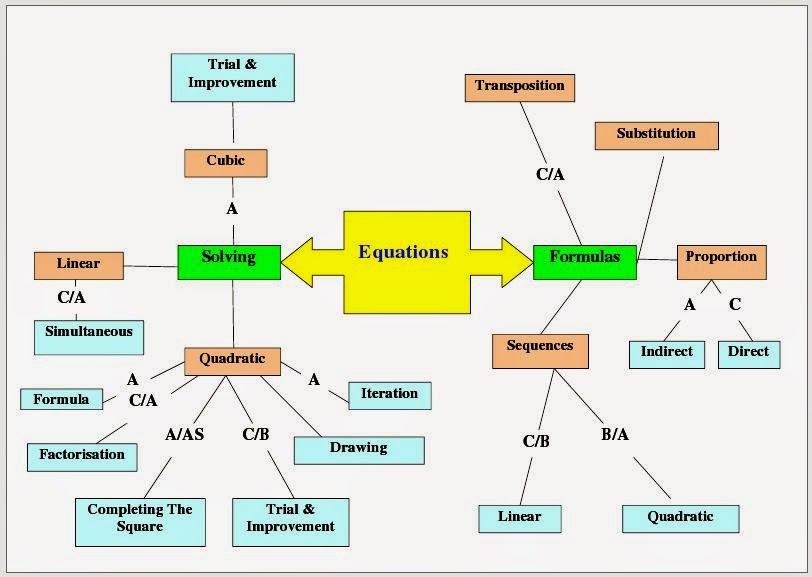I am currently studying for my GCSE's as I am in Year 11, meaning I will be leaving high school this Summer and moving on to college, which I am super duper excited about! However, I mustn't get too excited just yet as I have a ton of exams to sit before I am set free (around 21 to be precise - YIKES!)
I know many of you are in the same boat or, if you aren't sitting GCSE's will be studying for similar exams, tests or preparing for them, which is why I decided to put together a post containing 10 tips on what you can do to revise. I thought this was something I had lots of knowledge on so I'm pretty proud of this post, if I do say so myself haha! I am thinking of writing another post on preparing yourself for exams emotionally & physically so keep an eye out for that. But for now, lets get onto the revision tips.
- Create a timetable
2. Download revision Apps
Of course, this isn't necessary because, as I said, its about how you learn best and what methods you prefer, however, personally, I enjoy using apps sometimes. Don't get me wrong, 90% of the time, good old fashioned pen and paper does the trick, however, for certain subjects, I use apps. One app which I particularly like is called 'Quizlet.' It is free, (which is always a bonus) and I use it for French revision. It allows you to input all of the vocabulary/phrases you want to learn and you then have three options. You can either 1) look at a random phrase and type in the answer 2) match up pairs or 3) view them as flashcards to test yourself. I think this app is really good, especially for learning foreign languages. I use it on my iPad but, as you can make an account, I can also access it on my phone when I'm out and about. I think it will also be useful to download Dictionary and Thesaurus apps (if you don't want to use Google all of the time or if you don't have paper ones) as these will come in useful for pretty much every subject. My Dictionary and Thesaurus apps are actually my favourite ones on my phone because I'm a nerd who loves words haha! I've included screenshots of the three apps I just mentioned. Please let me know if you come across any other good revision apps!
3. Place constant reminders of your revision around your house
Depending on your learning type, you may or may not find this helpful, however, I think its a good idea of placing random bits of revision around your house so you are constantly reminded of it. For example, place sticky notes onto your fridge with a question on it which you have to answer before you are allowed to open it! I think its a great way to be constantly refreshing your memory on things and, before you know it, you won't even have to read the question before you know the answer! If your family aren't too pleased with you placing notes all around their house, apart from asking them repeatedly to change their minds because, after all, do they want you to fail?! haha ;) maybe just place the notes around your bedroom!
4. Do past/practise exam questions
This is something I do a lot of. Practise exam questions are a great way of revising as they allow you to see what types of things you can be asked in the exam, they get you used to the layout of the questions and they let you put what you have learned into action. I find them particularly useful for science. Also, past exam questions, especially from last year, can show you what types of questions are unlikely to appear again this year haha! It is super simple to find past papers on Google and then find the mark scheme. Also, if you have textbooks, try completing the practise questions in there. I think its good to do questions after a revision session. For example, Revise 20 minutes of a subject and then spend 10 minutes doing practise questions. You can then see where you went wrong and, hopefully, not make the same mistake twice!
5. Create mind maps
Once again, not everyone might learn from this, however, it can work really well for some people. If you don't know what a mind map is, it is essentially a brain storm, or, a big explosion of information on a piece of paper. I use these to revise for AS Philosophy and Religion. There are four topics in our course and so I will create four mind maps. I will place the title of each topic in the centre and, around it, will write all of the names of the topics INSIDE that topic, without going into detail. I will then make another mind map for each of the headings on that mind map and fill it with detail. I hope that made some sort of sense! This method can take time but is something you only have to do once and can be really useful. I can imagine it is really useful for sciences too. You can then, if you like, place the mind maps around your house or on your bedroom wall so, basically, there is no escape *insert evil laugh here* ;) I have just included an image of a mind map that I came across on Google Images.
6. Get people to test you
Getting either family members or friends to test you on certain subjects is a really good idea. It also means you can just hand them your revision notes, tell them to ask you questions and they have to do all of the work so you don't have to think of your own haha! You can also tell them to ask you questions at random times too, for example, whilst you are eating dinner. Its good to get some unexpected questions once in a while to keep you on your toes! You can also get them to write down the questions and you can write down your answers and then, later on, get them to quiz you again to see if you have improved!
7. Attend extra school revision sessions
This is something that some people may find extremely helpful, yet others may be totally against, however, I wanted to write a post containing ways for all types of people to revise. I attend extra revision sessions in my school for History, Maths and Chemistry after school and during form times. They are really beneficial for me as they allow me to revise over things that we perhaps learned a long time ago and are a bit grey in my head and they also allow me to ask questions to my teachers that I perhaps wouldn't feel comfortable asking infront of a class. Revision sessions in my school are a lot more 'intimate' as tonnes of people don't attend, as it is opintional, so the groups are smaller, which is better for me. During revision sessions, you can also talk to your teacher better and they have more time to explain things to you if you are unsure as, during lesson, they have to teach a full class the same things at the same time and may only be able to come over to you for a minute. I also attend revision sessions with my friends, which makes them a little less painful, and my teachers sometimes give us sweet treats (probz a form of bribery haha!) We also attend sessions during school holidays, which I think is good as it allows you to refresh your memory. Although, if you don't have revision sessions at your school, I definitely think it is a good idea to request that they start. However, if you learn best by yourself or, perhaps, hate all of your teachers, do whatever works for you!
8. Write things down
This is probably the most basic tip and you may be thinking "erm, Emily, we aren't stupid!" However, I think it is a good idea to, once you have read over your notes, copy them out. Not everyone might like this idea and some may prefer to just simply read their notes, however, something I like to do, personally, is write everything down, read over it, cover it up and then see if I can remember it. It is a really good way of revising and, plus, this 'look, write, cover, check' method helped me learn my spellings in primary school, so it must be good for something haha! Writing things down means the information can go into your head better and, also, it gives you something to physically DO whilst revising, instead of just sitting there. You are probably more likely to get bored if you're just sat with a book in your hands and are more likely to get distracted.
9. Watch videos
Personally, watching videos doesn't always work for me, however, sometimes, especially in lesson, my teacher will play a video relating to the topic which features a catchy song, rhyme or someone will make us laugh and, for some reason, that helps the topic stick in my head! Videos can work really well for some people and can make revision a bit more entertaining. It can also help when you watch a video of somebody explaining a certain topic. It can be good to discover new ways of working things out and explaining things and can be relaxing to listen to another voice other than the one inside of your head! I think its great that you can literally type any subject into YouTube nowadays and will be able to find a video explaining everything you need. I often use videos for science revision and Maths. For Maths, we are given a website called 'MathsWatch' where there are hundreds of clips of a lady explaining each topic, which is really useful.
10. Voice recordings
This last one may seem rather odd and may possibly be something you have never thought of doing before, however, sometimes, it could be useful to record your own voice onto your phone, laptop or another device, and replay it to learn the material. This isn't something I have tried myself but I have heard others do it and can imagine it can help, especially as you are listening to yourself reciting the facts. This would probably be super useful for any learning any foreign language as it will help you to get your pronunciation spot on! In my French lessons, when we had to do speaking tests, our teacher actually offered to record her voice onto our phones so we could listen back to it and learn what we had to say with the correct accents and pronunciation. I am sure that if you asked your teachers to do this they wouldn't mind at all!
I hope this blog post was useful to some of you! So sorry that it was so long-winded, however, revision isn't really something that you can do in five minutes and I wanted to make sure that I explained things properly. If this blog post helps just ONE of you and maybe gives you a new way to revise, then I am happy! Maybe you can let me know if any of these methods work for you? Also, tell me any other ways to revise that I have missed because I need all the help I can get haha!
Love, Emily :) xx






No comments:
Post a Comment